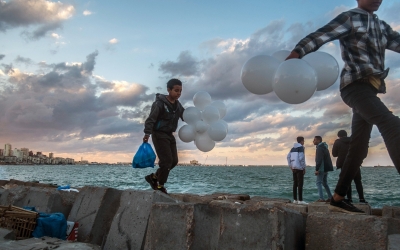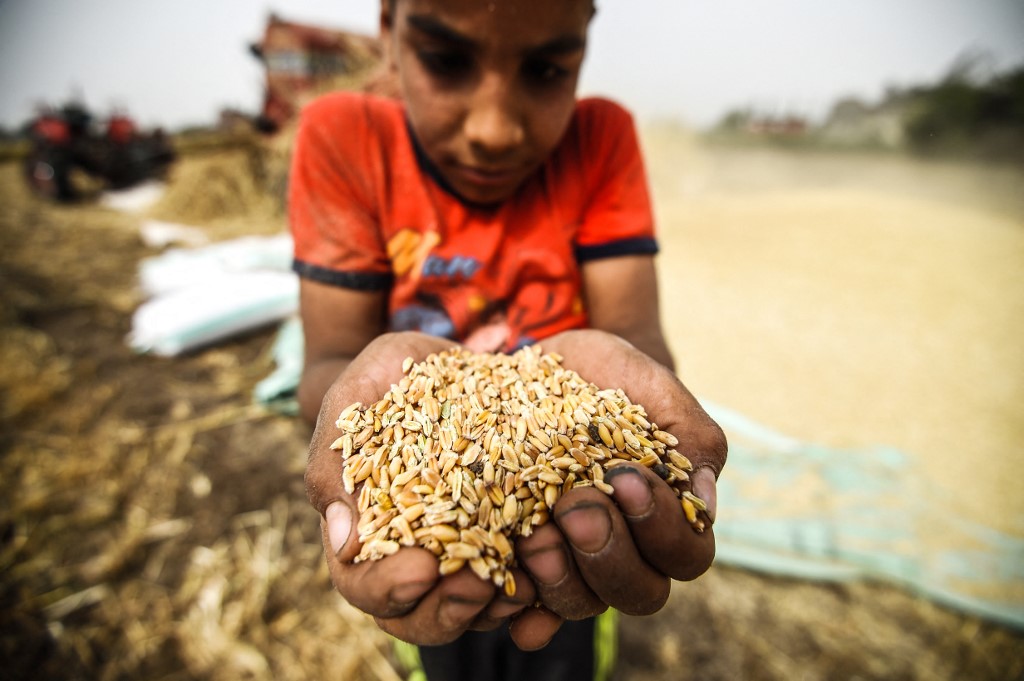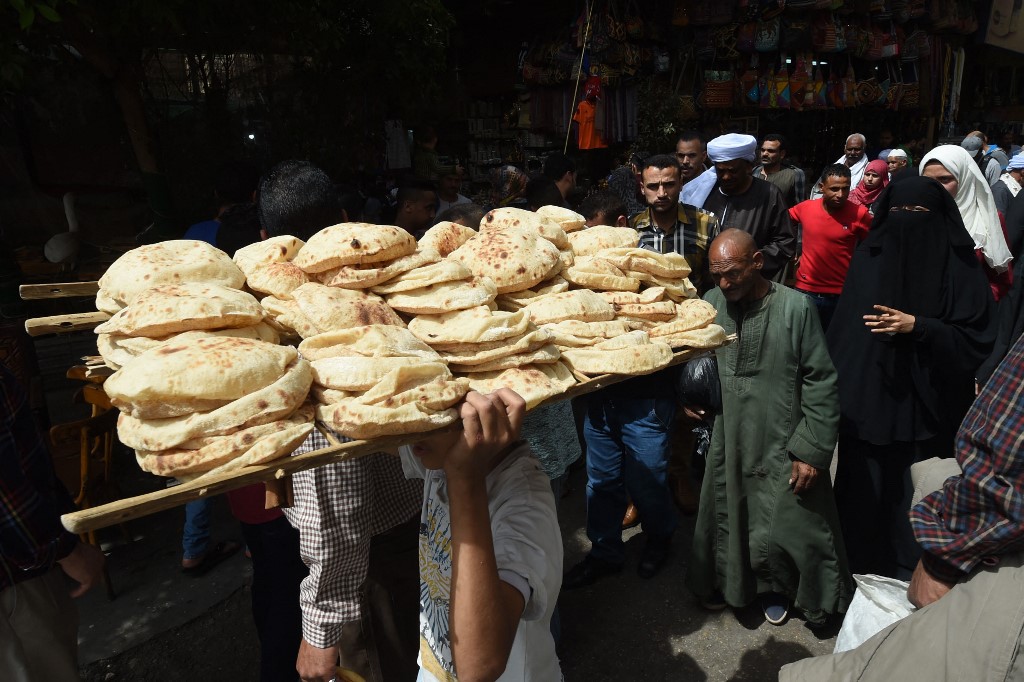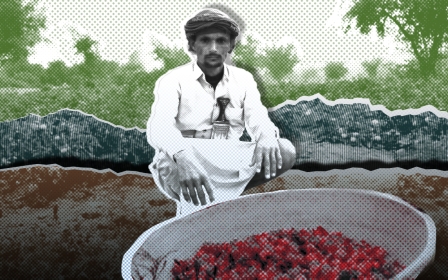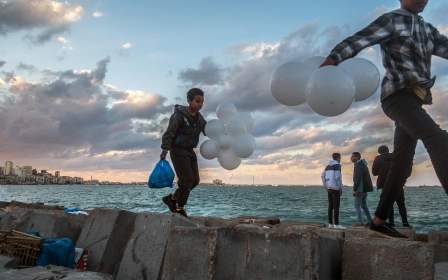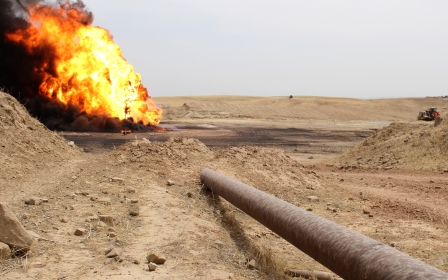'Millions vulnerable': Egypt hit hard by rise in global wheat prices
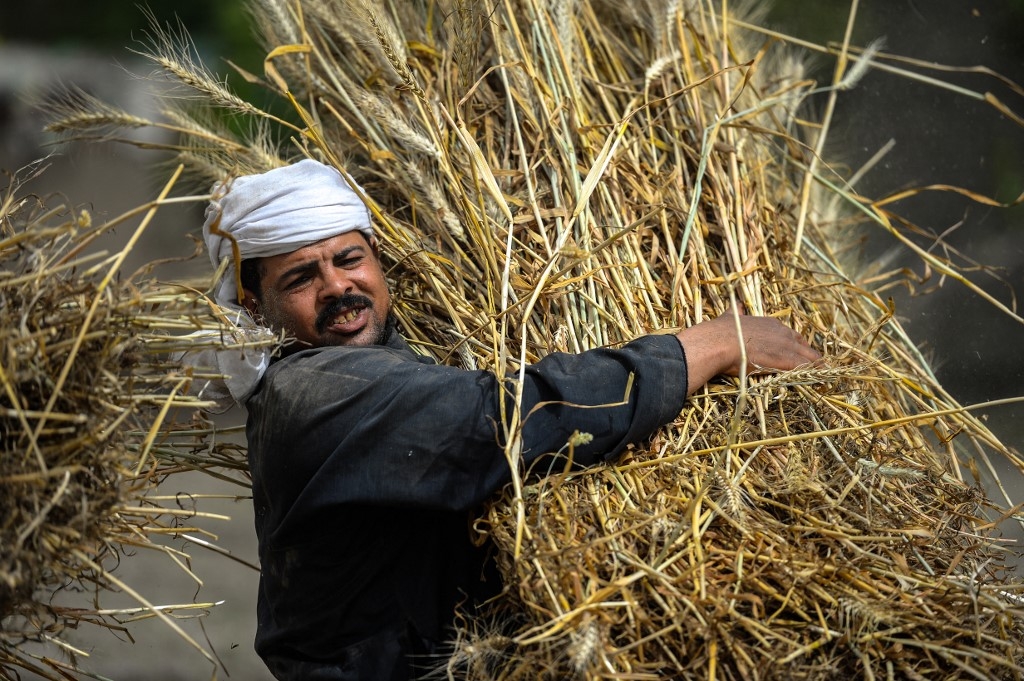
As the UN climate change summit continues in Glasgow, the Middle East's most populous country, Egypt, is reeling under the effects such changes are having on international wheat output.
A tight supply of stock and strong international demand have caused wheat prices in the international market to rise to their highest since 2012.
To add to the pressure, Russia, one of Egypt's most important suppliers, has imposed taxes on wheat exports.
Coming on top of a poor spring harvest, this has all spelt very bad news for Egypt, the world's largest wheat importer.
On 1 November, the General Authority for Supply Commodities, Egypt's wheat buyer, booked 180,000 tonnes of Russian milling wheat at $332.55 per tonne.
This was almost $5 higher than what the authority paid for wheat from its main suppliers, Russia, Romania and Ukraine, less than a week earlier.
The latest price is also about $80 higher than what was projected in the government's budget for the fiscal year 2020/2021.
This wide gap between expectations and reality, said analysts, throws light on the challenges climate change is posing to countries' abilities to secure their food needs.
"Climate change is having a heavy toll on agricultural output, not only here but everywhere else in the world," Mohamed al-Qersh, the official spokesman for the Egyptian Ministry of Agriculture, told Middle East Eye.
"The world must act together to prevent the effects of the change from having a wider scope in the future."
Making things worse
If Egypt imports the same amount of wheat this fiscal year as the previous year, its wheat import bill will grow almost $1bn.
The financial harm to the country could even be more intense if the wheat price rises even more in the coming weeks, especially with pessimistic forecasts about output and growing international demand.
The additional money Egypt has to spend because of the rise in the international market wheat price compounds the problems climate change is already causing the country.
'The latest rise in wheat prices will encourage farmers to grow more wheat'
- Saddam Abu Hussein, head of the Farmers' Union
Global warming has caused massive devastation to agricultural production when it comes to important crops, such as mangoes and olives.
The rise in the Earth's temperature also threatens to submerge some of Egypt's low-lying areas near the northern Mediterranean coast.
Such a scenario would mean Egypt losing some of its most fertile farmland, especially in the Nile Delta, and cause major displacement among Delta residents.
Some of those attending the summit in Glasgow cited Egypt as they rang the alarm bells over the dangers climate change is causing to coastal areas.
Meanwhile, Egypt is seeking to mitigate the impact of rising international wheat prices.
One measure is to encourage local farmers to grow more wheat, with the government raising what it pays local farmers for the cereal by 20 percent for the new season.
"The latest rise in wheat prices will encourage farmers to grow more wheat," Saddam Abu Hussein, the head of the Farmers' Union, the independent guild of the nation's farmers, told MEE.
"Farmers abstained from growing wheat in the past because the government bought it for a low price."
High consumption of bread
Egypt cultivated 1.47 million hectares with wheat in 2020, while national wheat output was 8.9 million tonnes last year.
However, this output covers less than 50 percent of national annual consumption, making the country heavily dependent on imports.
This dependence finds its roots in the exceptional local demand for bread, which has been central to Egyptians' diet for hundreds of years. Egyptians call bread Aish, Arabic for "life" or "living".
Egypt also has limits in its ability to increase wheat production, with water shortages one factor.
"Egypt's water resources have been the same for hundreds of years, while its needs keep growing," said Qersh. "These limited resources undermine agricultural expansion plans."
In a bid to counter the water shortage, the nation's research centres are experimenting with wheat strains that are drought resistant or less water-consuming than traditional ones.
The government is also considering a cut to bread subsidies by raising its price for those enrolled in the national food rationing system. It allocated $3.3bn for bread subsidies in the 2021/2022 budget, up from $3bn previously.
More than 88 percent of Egypt's population of 102 million are registered in the rationing system.
Those registered are allowed to buy bread from government-financed bakers for 5 Egyptian piasters ($0.0032) a loaf, whereas the actual cost of the bread is 65 piasters ($0.0416) a loaf.
Subscribers to the system are allowed to get for free, or for a fraction of their market prices, other foodstuffs, including rice, sugar, cooking oils, pasta and butter.
If introduced, the bread price increase would be the first since 1977.
There are fears that such a move could stoke anger on the streets, especially with other prices, particularly those of food, rising across the board in the local market.
"The government will be running a major risk if decides to raise the price of bread," Mahmud al-Asqalani, the head of local NGO Citizens against Price Hikes, a group that lobbies for reasonable commodity prices for consumers, told MEE.
"Possible public anger can jeopardise the nation's security."
Egypt witnessed intense violence during protests against a rise in the cost of bread in 1977, when then-president Anwar Sadat wanted to minimally increase food prices.
Known as the "bread uprising," the incident has for decades scared Egypt's rulers away from similar action.
Hedging contracts
Last month, Egypt had to cancel a wheat tender for the fourth time this year because of high prices.
To avoid potential disruptions in supply from foreign markets, Cairo will enlist an international investment bank in signing wheat import hedge contracts.
The contracts, the minister of supply said last week, would shield Egypt against future international price fluctuations.
The government is seeking to sign similar contracts with international suppliers of cooking oil, another very important commodity in its food import inventory.
Ministry of Supply officials have pinned their hopes on the hedge contracts to help Egypt keep afloat, with the prices of essential commodities likely to continue to fluctuate in the coming weeks.
"The contracts will protect us against any possible sharp increases in the prices of these commodities," Abdelmonem Khalil, a senior Ministry of Supply official, told MEE.
"Nobody can predict prices in the international market, and hence comes the importance of the contracts."
Inflationary fears
There are fears that the expected continued rise in food prices, along with some of the government measures above and coupled to low supply and high demand, will open the door for a new wave of inflation.
The rise in food prices has been the main factor behind steepening inflation in Egypt in the past few months.
Headline inflation rose to 6.6 percent in September, the highest in 20 months, from 5.7 percent in August, according to the Central Agency for Public Mobilisation and Statistics.
The prices of some commodities in the local market have jumped more than 50 percent.
Fears of further increases are sparking calls for action from the authorities to protect tens of millions of vulnerable Egyptians against a new inflationary wave.
"The government has to take action to protect the poor by expanding social protection networks for these people," said Asqalani.
Middle East Eye propose une couverture et une analyse indépendantes et incomparables du Moyen-Orient, de l’Afrique du Nord et d’autres régions du monde. Pour en savoir plus sur la reprise de ce contenu et les frais qui s’appliquent, veuillez remplir ce formulaire [en anglais]. Pour en savoir plus sur MEE, cliquez ici [en anglais].


